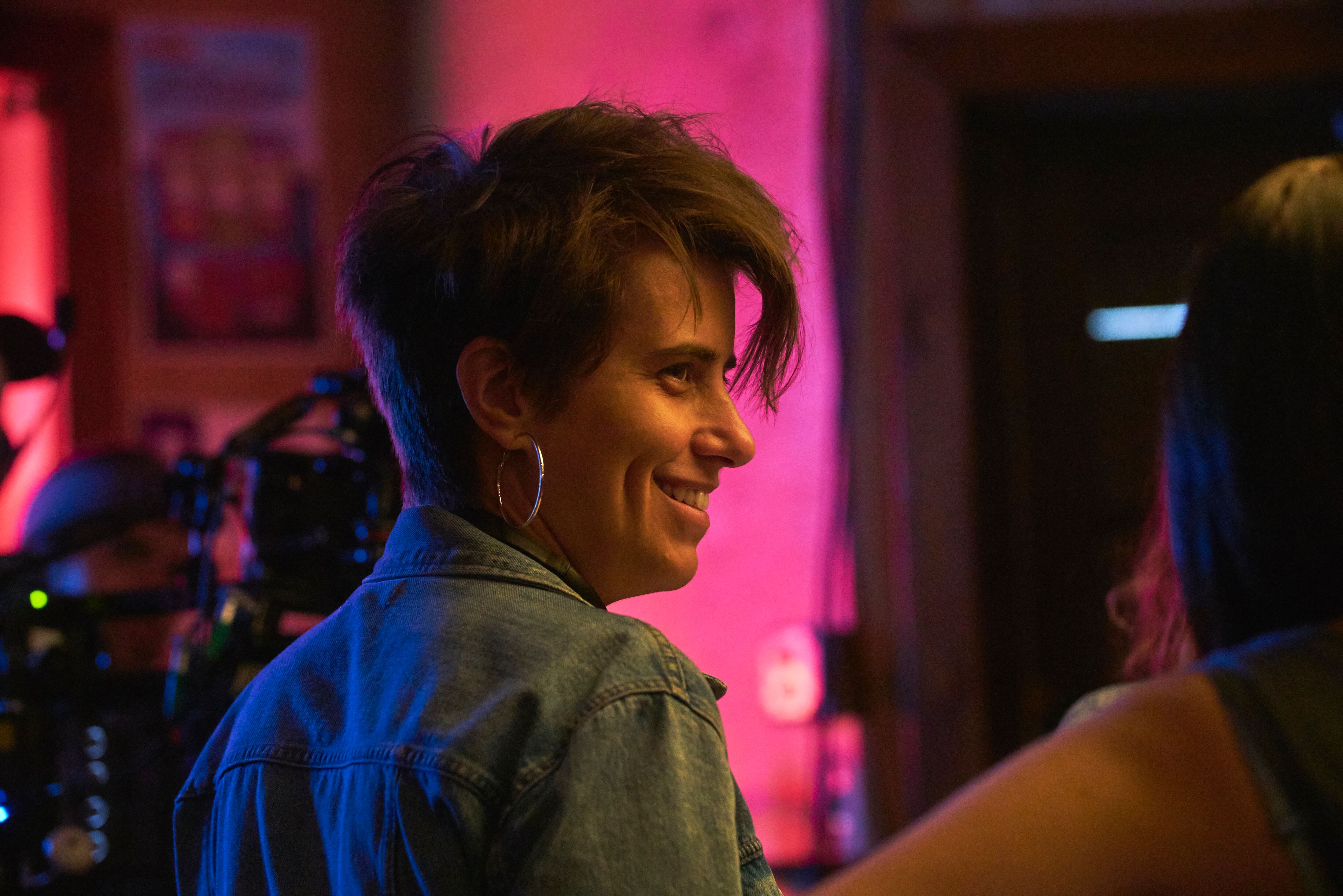I Used to Go Here, the new comedy from writer-director Kris Rey, is about what happens when things don’t turn out the way you expect. Gillian Jacobs gives a winning performance as an author whose book tour is cancelled, only for another door to open: She’s invited to speak at her alma mater, which leads to some hijinks and even more reflective moments. It’s a sweet and poignant story, one that won over the selection committee for the South by Southwest Festival — a major outlet for independent filmmakers to screen and sell their work.
By now, you know what happened next: South by Southwest, commonly referred to as SXSW, was canceled for the first time in 34 years, in response to the coronavirus outbreak. Though it might seem relatively insignificant among the innumerable terrible things COVID-19 has caused, the cancellation of SXSW exerts an enormous effect on the arts community, the city of Austin, Texas (where it takes place), and all the filmmakers and bands that use the festival’s exposure to support their art.
SXSW’s history is full of small, low-budget movies that obtained big distribution deals after premiering at the festival, such as Lena Dunham’s Tiny Furniture and Joe Cornish’s Attack the Block. Exile PR publicist and founder Kaila Hier is representing two films, Lucky and Crestone, that were set to play the fest. She says that SXSW is a major financial boost for independent filmmakers. Plus, “it’s also a festival with a huge amount of international attention,” she adds. “Any other year, all eyes would be on news coming out of SXSW right now, and industry, programmers, and press from around the globe would be there testing the waters on the next big thing and competing to be the ones to grab it first.”
The cancellation has landed Rey and like-minded filmmakers in an unprecedented situation. “It’s trying to still get a sale, despite the lack of momentum from a screening,” Rey says. Because of the SXSW cancellation, Rey’s film had to pull out of the Vail Festival in Colorado, where it was set to screen on March 27. The plan for I Used to Go Here is now to get a buyer before playing regional fests.
I Used to Go Here is the first feature that Rey has made since 2015’s Unexpected. During the process of creating the film she went through a divorce (with Chicago filmmaker Joe Swanberg) and other “intense stuff.” The plot was inspired by what she calls the “cloud of admiration” lavished on her from college students while touring Unexpected through college campuses.
“I’m 100 percent in a better position than [smaller] films,” Rey says. “The festival got cancelled and I got on the phone with eight people right away.” But the effect of SXSW’s cancellation had Rey reflecting on her 2009 film It Was Great, But I Was Ready to Come Home, which she made for $10,000. It premiered at SXSW, and helped launch her career. Had something like coronavirus struck that year, Rey says, a termination like that would have been “the end of the film,” a point that speaks to a lot of the smaller features currently in jeopardy.

When it comes to the next step, everyone in the mix is at a loss. “There is no standard, and will be none,” Hier says when talking about how filmmakers of various-sized projects are taking the next step. As someone in contact with filmmakers, publicists, press, and industry folks, Hier says that some features are “keeping the laurels [of being selected] for sales and pride reasons.” There has been talk of an online festival, offered with no fee to previously accepted films. But it’s by no means an easy fix.
Reviews can still generate some hype, a form of publicity that’s just as important as the audience reactions at festival screenings. Rey supports this notion, and encourages press to pursue the movies for coverage, as the film website IndieWire recently declared it was going to do. “It’s better than nobody talking about it,” she says.
When it comes to these movies applying to future festivals, the possibilities are uncertain. The smaller SXSW titles are in a tougher spot — the fest might have been their best shot at getting wider press coverage, with regional and genre festivals being perhaps the only available option.
A possibility for films like Rey’s would be industry screenings in markets like New York and Los Angeles. But even that has come with a coronavirus problem, as Rey’s own originally scheduled press and industry showcase for I Used to Go Here had to be canceled when her representation, United Talent Agency, closed its screening room.
As I Used to Go Here searches for a home, one of the next festival trips on Rey’s schedule is the Buenos Aires International Festival of Independent Cinema, which runs from April 15 to 20, where she will also participate as a judge. They’re showing a retrospective of her work, which could include what would be the world premiere of I Used to Go Here — if the show even goes on.
After the SXSW news, Rey started writing an essay that reflects upon the very spirit of indie filmmaking, and its enduring sense of community. She let me read an early draft of it, and a passage in particular stood out: “One thing that makes independent films so special is that they are so damn hard to make, and the sheer struggle of bringing them to life is inspiring, in and of itself,” Rey writes. “Getting an indie film seen takes a whole community of people working hard, not because they are paid well, but because they are passionate. We are all part of that community.”





Comments are closed.